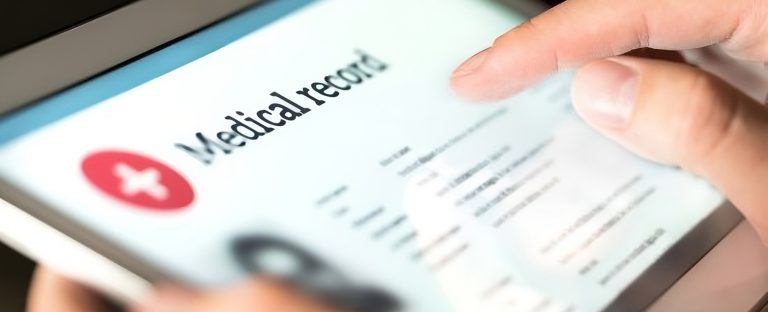The future of healthcare is not just about prescribing medications or performing surgeries; it’s about a comprehensive approach to well-being. And this is where holistic medicine shines. Holistic healthcare providers, like acupuncturists, massage therapists, and naturopathic doctors, offer a unique blend of traditional and alternative treatments. But to efficiently manage their practices and provide seamless patient care, they need robust Electronic Health Records (EHRs). In this blog, we’ll dive deep into the future of EHRs in holistic medicine and why this integration is crucial for streamlining operations.
The Current State of EHRs
EHRs have become an essential part of medical practices, including holistic healthcare. They provide a centralized system for storing patient medical histories, treatment plans, medications, and other health-related data. However, many EHR systems used today are geared more toward conventional medical practices and may not capture the unique types of information relevant to holistic medicine. For instance, acupuncture billing, massage therapy, and naturopathic treatments often require specialized modules not found in standard EHR systems.
Why Holistic Medicine Needs Specialized EHRs
Holistic medicine is unique; it integrates mind, body, and spirit. Therapies often include acupuncture, massage, herbal treatments, lifestyle changes, and mindfulness techniques. The nuances of these treatments require an EHR system tailored to capture this level of detail. Specialized EHRs help improve practice efficiency by allowing providers to record intricate details about each treatment, patient reactions, and other notes crucial to holistic healthcare. This is where the future is headed, providing holistic healthcare providers with EHR systems that understand their unique needs.
Key Features to Look For
As the industry evolves, we can expect several key features to become standard in holistic healthcare EHRs.
Integrative Treatment Plans
With the range of treatments offered by holistic providers, EHRs need a flexible way to create and manage integrative treatment plans. Providers should be able to document various therapies, from acupuncture billing to herbal regimens, in a single, easy-to-read format.
Secure Data Management
Holistic healthcare often deals with sensitive patient information, making EHRs need to comply with security standards, like HIPAA, to safeguard patient data.
Billing and Insurance Modules
Given the growing acceptance of alternative therapies, more insurance companies are willing to reimburse for treatments like acupuncture and massage therapy. Future EHRs will have robust billing modules to handle the unique codes and documentation needed for insurance claims in holistic medicine.
The Importance of Analytics
In any medical practice, data drives improvements and decision-making. EHRs can gather a wealth of information, but it’s only applicable if we can interpret it. Future EHRs in holistic medicine will feature powerful analytics tools. These will help providers assess treatment efficacy, patient satisfaction, and financial metrics for a successful holistic healthcare practice.
Patient Engagement
The future of holistic healthcare EHRs will focus heavily on patient engagement. Features like patient portals, where individuals can book appointments, view treatment plans, and communicate with providers, will become standard. A more engaged patient is generally healthier; these tools facilitate that engagement.
Final Thoughts
Holistic medicine deserves EHRs as nuanced and comprehensive as the care provided. The demand for specialized EHR systems will grow as holistic treatments integrate into mainstream healthcare. It’s an exciting time to be involved in holistic healthcare as the future promises EHR systems tailored to meet the unique needs of these practices.
The trajectory for the integration of EHRs in holistic medicine is clear. It’s not just about digitizing patient records; it’s about improving practice efficiency, ensuring compliance, and, most importantly, enhancing patient care. As we look forward to a future with EHR systems designed for holistic medicine, the opportunities for growth and improved patient care seem limitless.
Whether you’re an acupuncture clinic looking for better acupuncture billing services or a naturopathic doctor wanting to streamline your practice, the future of EHRs in holistic medicine is something to watch. And if you’re in the market for an EHR system tailored for holistic medicine, look at our comprehensive services. Visit us at holisticbillingservices.com to learn more.
In today’s fast-paced healthcare environment, optimizing efficiency is not just a luxury, it’s a necessity. One key way wellness practices are streamlining their operations is by embracing Electronic Health Records (EHRs). The shift from paper records to digital platforms, like those offered by Holistic Billing Services, is transforming how holistic health practices manage their administrative tasks and patient care. Here’s how EHRs are improving practice efficiency:
Reduced Paperwork and Administrative Tasks
EHRs eliminate the need for maintaining bulky paper records, which not only consume physical space but also require significant time to manage. Digital records are easy to maintain, update, and retrieve, significantly cutting down administrative tasks and freeing up time for patient care.
Improved Coordination of Care
With EHRs, all of a patient’s health information is consolidated in one place. This enables seamless communication among all care providers, resulting in better-coordinated and more effective care. Interoperability features of EHRs allow for secure sharing of information, making referrals and consultations smoother.
Streamlined Billing and Coding
EHR systems come with built-in billing and coding tools. They help generate accurate bills, automate coding, submit insurance claims, track payments, and flag any potential errors before submission. This translates into reduced denials and improved revenue cycle management.
Better Compliance
EHRs facilitate compliance with regulatory requirements. They can automatically update to reflect changes in laws and regulations, helping your practice stay compliant. Plus, they have inbuilt security measures to protect sensitive patient data, which is essential for HIPAA compliance.
Data-Driven Decision Making
EHRs capture vast amounts of data, which can be harnessed for informed decision-making. They can generate detailed reports and analytics, providing insights into practice patterns, patient outcomes, financial performance, and more. This data can guide improvements in your practice.
The Holbie Difference
At Holistic Billing Systems, our Holbie EHR system is designed with the needs of holistic healthcare providers in mind. We understand the unique challenges you face, and our software is tailor-made to address those. We continuously refine our EHR based on user feedback and industry trends, ensuring that it remains a reliable, intuitive, and powerful tool for your practice.
Our EHR doesn’t just digitize patient records – it transforms them into a dynamic platform for practice management. From scheduling to billing, from patient communication to reporting, our EHR simplifies and streamlines all aspects of practice management.
Final Thoughts
Incorporating an EHR system into your practice can revolutionize your efficiency and quality of care. As you consider this transition, be sure to choose an EHR like Holbie, who understands your needs and is a robust, easy-to-use system. With Holbie, you’re not just choosing an EHR – you’re choosing a partner dedicated to helping you simplify your practice and amplify your impact.
Get in touch with us today to see how Holbie EHR can enhance the efficiency of your wellness practice.
In an era where technology is advancing at an unprecedented pace, maintaining a tech-savvy acupuncture practice can be a game-changer. Electronic Health Record (EHR) systems have become an essential component of effective practice management. In fact, a study conducted by the National Center for Health Statistics (NCHS) found that as of 2017, nearly 9 out of 10 (86%) of office-based physicians have adopted an EHR system. But how do you choose the right one for your acupuncture practice? Here are some tips to guide your decision-making process.
1. Understand Your Specific Needs
Every practice is unique, with varying requirements for software functionality. A study published in Perspectives in Health Information Management suggests that the practice’s needs should guide the selection of an EHR system. Understanding your clinic’s workflow, size, patient volume, and the specific features that will benefit your practice can help narrow down your choices.
2. Evaluate Usability and User Interface
According to a survey by the American Medical Association (AMA), 54% of providers expressed dissatisfaction with their EHR systems due to poor usability. Hence, the software’s user interface should be intuitive and easy to navigate, reducing the learning curve and enabling you and your staff to operate it effectively.
3. Ensure Data Security and Compliance
Patient data security is critical. A study by the Ponemon Institute found that healthcare data breaches cost $6.45 million on average. Thus, the EHR system you choose should comply with all necessary regulations, such as HIPAA, and provide robust data security measures.
4. Check Interoperability
The ability to share patient information with other healthcare providers is a significant advantage of EHR systems. According to the Office of the National Coordinator for Health Information Technology, 93% of hospitals had EHR technology to view, exchange, and receive health data with other health providers in 2015.
5. Consider Pricing and ROI
EHR systems can be an investment. However, when chosen wisely, they can provide substantial ROI through increased efficiency, improved patient satisfaction, and reduced administrative costs.
6. Test Customer Support and Training
Effective customer support and training are crucial for a smooth transition to a new EHR system. Therefore, opt for vendors who offer comprehensive onboarding and continuous support.
In conclusion, choosing the right EHR system for your acupuncture practice involves careful consideration of your unique needs, usability, data security, interoperability, pricing, and support. By taking the time to assess your options thoroughly, you can find a system that not only simplifies your practice management but also amplifies your impact on your patient’s health and well-being.
Are you still wondering how to make the right choice? Holbie offers an EHR system specifically designed for acupuncturists, chiropractors, and massage therapists, ensuring all your unique needs are covered. Feel free to get in touch with us to learn more.
As integrative healthcare practitioners, you know the importance of providing personalized, holistic care to patients. You understand that physical, emotional, and environmental factors influence your patient’s health. You need a system that enables you to efficiently document, manage, and track your patient’s health information. Enter electronic health records (EHRs).
What Are Electronic Health Records (EHRs)?
Electronic health records (EHRs) are digital versions of traditional paper-based patient charts. They store a patient’s medical history, treatment plans, diagnostic information, and more. By replacing paper records with digital ones, EHRs can significantly improve healthcare practices’ efficiency and enhance patient care quality.
Benefits of Electronic Health Records for Integrative Healthcare Practitioners
For practitioners in the fields of acupuncture, massage therapy, and chiropractic care, adopting an EHR system can bring a wide range of benefits:
- Improved Documentation: EHRs provide a consistent, structured format for documenting patient information, making it easier to keep track of treatment plans, progress notes, and other essential data. This can help to reduce errors in patient records.
- Streamlined Communication: EHRs facilitate seamless communication between practitioners and other healthcare providers. By securely sharing patient information, practitioners can coordinate care more effectively, ensuring patients receive the most appropriate treatments and interventions.
- Enhanced Decision-Making: EHRs can provide practitioners with a comprehensive view of a patient’s health history, allowing them to make more informed decisions about their care. This can be particularly valuable for integrative healthcare practitioners who often need to consider various factors when developing treatment plans.
- Increased Efficiency: EHRs can significantly reduce the time spent on administrative tasks, such as updating patient records, scheduling appointments, and processing insurance claims. This allows practitioners to focus more on patient care and less on paperwork.
- Data Security and Compliance: EHRs can help practitioners protect patient information through encryption and secure access controls, ensuring that sensitive data remains confidential. In addition, EHR systems can help practitioners stay compliant with industry regulations, such as HIPAA, by providing tools to manage patient consent and track data access.
Choosing the Right EHR System for Your Practice
When selecting an EHR system, it’s essential to choose one tailored to your specific practice’s needs. For integrative healthcare practitioners, this means finding an EHR system that supports your unique treatment modalities and offers features that enhance your workflow.
Here are some factors to consider when choosing EHR systems:
- Interoperability: Choose an EHR system that can integrate with other healthcare systems and software, such as practice management tools and billing services. This will enable you to streamline your practice’s operations and improve communication with other providers.
- Ease of Use: It’s crucial to select an EHR system that’s user-friendly and easy to learn. This can minimize the learning curve for you and your staff, ensuring a smooth transition to the new system.
- Scalability: As your practice grows and evolves, your EHR system should be able to grow with you. Look for a system that can accommodate additional users, locations, and services as needed.
By adopting an EHR system tailored to integrative healthcare practices, you can experience many benefits that help you provide the highest quality care to your patients. Let’s explore some additional aspects of EHR systems that can support your practice.
Analytics and Reporting
By aggregating and analyzing patient data, EHR systems can provide valuable insights into your practice’s performance. With reporting capabilities, you can track important metrics, such as patient demographics, appointment trends, and revenue sources. These insights can help you make informed decisions about marketing, staffing, and service offerings to ensure your practice’s continued growth and success.
In addition, EHR systems can help you monitor clinical outcomes and identify patterns in patient care. This information can be used to refine your treatment approaches, implement quality improvement initiatives, and demonstrate the effectiveness of your services to patients, insurance companies, and other stakeholders.
Training and Support
When implementing a new EHR system, it’s essential to have access to comprehensive training resources and ongoing support. EHR vendors should provide thorough training materials, such as tutorials, webinars, and user guides, to help you and your staff get up to speed quickly. In addition, they should offer responsive customer support to address any questions or issues that may arise during the implementation process and beyond.
Cost and Return on Investment
Finally, it’s essential to consider the cost of implementing an EHR system and the potential return on investment (ROI) for your practice. While upfront fees may be associated with purchasing and setting up the system, look for systems with minimal up-front costs, however, the long-term benefits can far outweigh these expenses. Improved efficiency, reduced errors, and enhanced patient care can lead to increased patient satisfaction and retention and potential revenue growth.
When evaluating EHR systems, consider factors such as subscription fees, hardware requirements, and additional training or support costs. It’s also helpful to compare the prices and features of various EHR systems to find the best fit for your practice’s needs and budget. Adopting an EHR system tailored to the needs of your integrative healthcare practice can significantly enhance your ability to provide personalized, high-quality care to your patients. By carefully considering the features, functionality, and support offered by different EHR systems, you can choose the right solution to help your practice thrive now and in the future.
How does this apply to a billing business that specializes in medical-massage, acupuncture, and chiropractic billing? The time-consuming and challenging procedure of medical coding and billing does not need to take up your time when you are occupied filling your schedule. Your time, energy, and creativity are freed up to concentrate on what matters most: your patients, by delegating your online appointments, SOAP notes, or medical billing load to a reputable company like Holistic Billing Services. The helpful professionals at HBS are glad to support you in EHR and medical billing success and have decades of experience. To begin creating a unique solution that meets the needs and objectives of your acupuncture clinic, get in touch with us right now.




